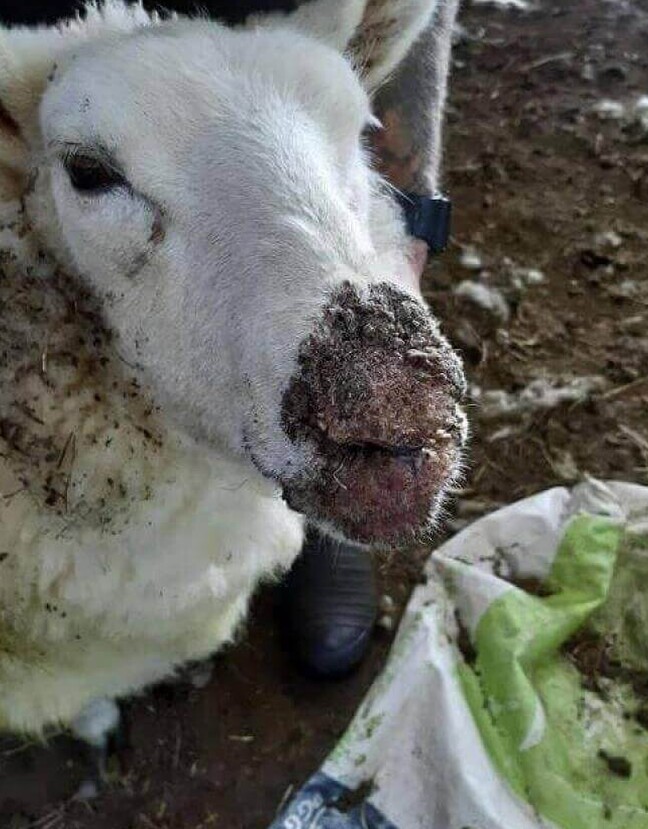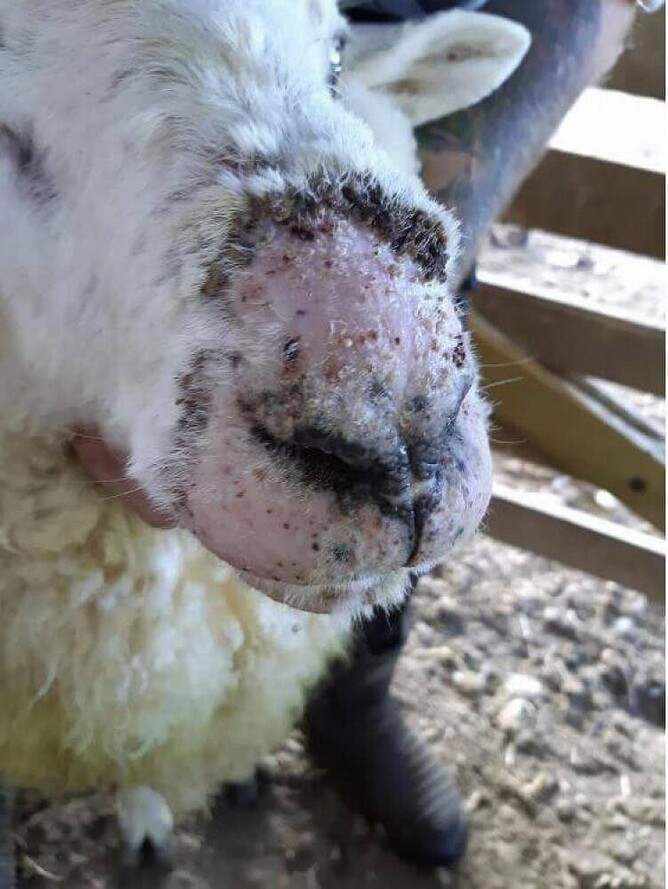We normally see cases in late spring, but recently we saw a case in autumn. A timely reminder as to why vaccinating and prevention is the best approach.
Scabby mouth (also known as contagious eczema, pustular dermatitis, orf etc.), is a viral disease affecting sheep, humans and dogs.
Late spring, early summer is when we most commonly see the disease in sheep but this case was in mid-April. It lives in the environment or on incoming animals and can cause disease in those that haven’t had contact with it before. Scabs develop around the nose and mouth (also the udder and vulva and sometimes the scrotum) and it is very easily passed between sheep but can also be passed onto people and can leave nasty scars.
Make sure you wash your hands and wear gloves and long sleeves if handling infected sheep. Keep farm dogs away too. There is usually no benefit in giving antibiotics as the scabs heal by themselves in a few weeks but what you can do is vaccinate to prevent it. Providing pain relief and shade is important and removing thistles from paddocks may help reduce the number of animals that catch the disease as it enters via cuts and scratches on the skin. It is not usually recommended you remove the scabs as these are very infectious and can spread the disease further and removal is painful.
If you are already vaccinating be sure to check for a good scab inside the back leg, at least a week after vaccination to make sure the vaccine has worked. Ask your KeyVet for more details about the disease and how to prevent it from affecting your flock next season.


